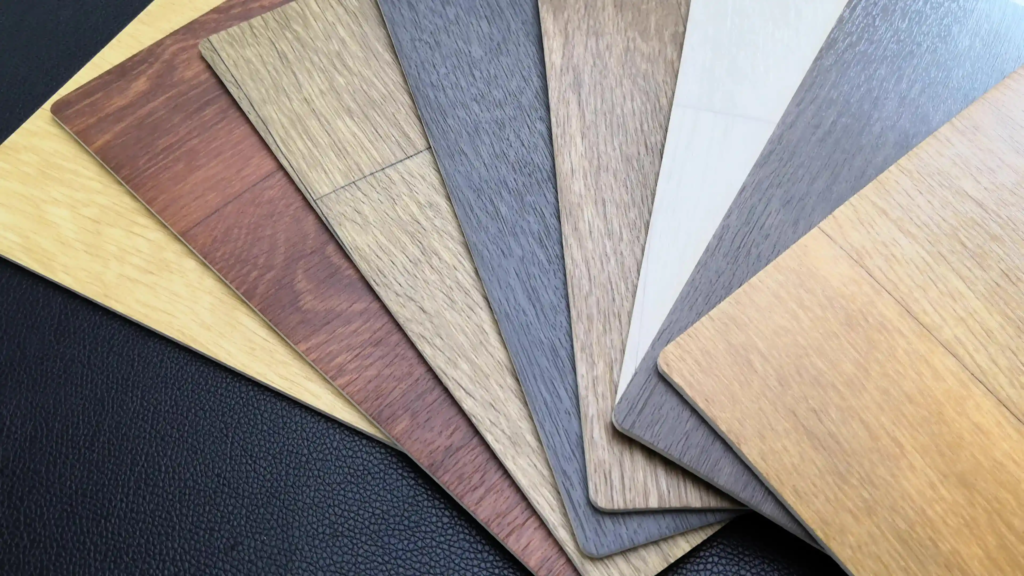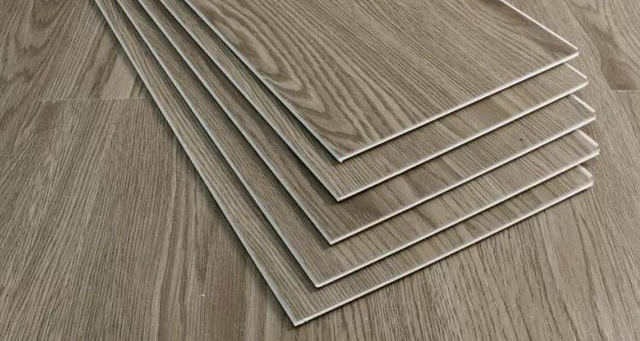When it comes to choosing the right flooring for your home or business, two popular options often come up: SPC flooring and vinyl flooring. Both of these flooring types offer numerous benefits, but they also have their distinct characteristics. Understanding the differences between SPC flooring and vinyl flooring can help you make a well-informed decision based on your specific needs, preferences, and budget.
In this article, we'll take an in-depth look at SPC flooring and vinyl flooring, comparing them in terms of durability, installation, maintenance, cost, and more.

What is SPC Flooring?
SPC stands for Compuesto de piedra y plástico, a type of rigid core luxury vinyl flooring that combines natural limestone powder and PVC. The result is a highly durable, waterproof, and dimensionally stable flooring option. SPC flooring is particularly popular for residential and commercial spaces due to its exceptional performance and ease of installation.
What is Vinyl Flooring?
Vinyl flooring, also known as LVT (Luxury Vinyl Tile) or LVP (Luxury Vinyl Plank), is made from synthetic materials, primarily PVC (polyvinyl chloride). Vinyl flooring can come in a variety of styles, including sheets, tiles, and planks. It is known for being affordable, versatile, and easy to maintain, making it a popular choice for many applications.
SPC Flooring vs Vinyl Flooring: Key Differences
Below, we compare SPC flooring and vinyl flooring based on several important factors:
| Factor | Pisos SPC | Vinyl Flooring |
|---|---|---|
| Composition | Stone plastic composite (Limestone + PVC) | PVC (Polyvinyl Chloride) |
| Durabilidad | Extremely durable and resistant to wear and tear | Durable but may wear out more quickly than SPC |
| Resistencia al agua | Fully waterproof, ideal for wet areas | Water-resistant, but may warp if exposed to water |
| Comodidad | Rigid core, slightly harder underfoot | Softer underfoot due to the flexible composition |
| Sound Insulation | Superior soundproofing capabilities | Less effective in noise reduction |
| Ease of Installation | Click-lock installation system (DIY-friendly) | Easy to install, some variants require glue |
| Maintenance | Low-maintenance, easy to clean and care for | Easy to clean, but can require more frequent care |
| Price | Mid to high range depending on brand and quality | Generally more affordable |
Durability and Performance
Pisos SPC: One of the standout features of SPC flooring is its durability. The stone composite core gives it superior strength compared to traditional vinyl. SPC is highly resistant to impacts, scratches, and dents. It can withstand heavy foot traffic, making it a great choice for both residential and commercial spaces. Furthermore, it is 100% waterproof, making it ideal for high-moisture areas such as kitchens, bathrooms, and basements.
Vinyl Flooring: Vinyl flooring is also durable, but it tends to be more susceptible to wear and tear over time, especially in high-traffic areas. Though many vinyl flooring products are water-resistant, they may not offer the same level of protection as SPC flooring when it comes to moisture exposure. In addition, vinyl flooring may develop cracks or wrinkles if exposed to prolonged moisture or extreme temperature changes.
Comfort and Underfoot Feel
Pisos SPC: Due to its rigid core, SPC flooring can feel harder underfoot compared to vinyl. However, this firmness contributes to its durability and stability. Some SPC products come with additional padding or underlayments to improve comfort, but overall, SPC flooring is not as soft or cushioned as other flooring types.
Vinyl Flooring: Vinyl flooring has a softer, more flexible composition, which makes it feel more comfortable underfoot. Many vinyl products also come with a cushioned backing, further enhancing the comfort level. This makes vinyl flooring a great choice for areas where standing for long periods is common, such as kitchens and laundry rooms.
Waterproof Capabilities
Pisos SPC: One of the main advantages of SPC flooring is its 100% waterproof nature. The stone-plastic composite core prevents water from seeping into the floor, which is a major concern with wood or laminate flooring. This makes SPC ideal for areas prone to moisture, such as bathrooms, kitchens, basements, and even commercial spaces exposed to water.
Vinyl Flooring: Vinyl flooring is generally water-resistant but not fully waterproof. While it can handle spills and splashes, prolonged exposure to water can cause the edges to curl or warp. Vinyl may not be the best choice for areas with standing water, such as bathrooms with high humidity levels or flooded basements.
Installation
Pisos SPC: SPC flooring typically uses a click-lock installation system, which makes it easy to install without the need for glue or nails. This DIY-friendly feature saves both time and money on installation costs. Most SPC flooring planks or tiles simply click into place, ensuring a quick and hassle-free setup.
Vinyl Flooring: Vinyl flooring comes in different formats, including sheet vinyl, tiles, and planks. Most types of vinyl flooring are relatively easy to install, with some requiring glue or adhesive for proper adhesion. However, click-lock versions of vinyl flooring are also available, making it easier for homeowners to install the floor themselves.
Maintenance and Care
Pisos SPC: SPC flooring is low-maintenance. It can be easily cleaned with a damp mop and mild detergent. Since SPC is resistant to stains, scratches, and dents, it retains its appearance even with minimal maintenance. You won’t need to worry about refinishing or resealing it like you would with hardwood floors.
Vinyl Flooring: Vinyl flooring is also easy to maintain and clean. Regular sweeping and occasional mopping are all that is needed to keep it looking new. However, vinyl flooring is more prone to scratching and scuffing, especially in high-traffic areas. Using rugs or mats in entranceways can help minimize this issue.
Cost Comparison
Pisos SPC: Generally, SPC flooring is priced in the mid-to-high range, but it offers excellent value considering its durability, performance, and longevity. While the initial cost might be higher than traditional vinyl, the long-term durability of SPC makes it a wise investment.
Vinyl Flooring: Vinyl flooring is typically more affordable than SPC, especially in terms of upfront costs. This makes it an attractive option for those on a tight budget. However, the durability and lifespan of vinyl flooring may not match that of SPC, and you might need to replace it sooner than you would SPC flooring.

Conclusion: Which Flooring Option is Right for You?
Ambos Suelos SPC y suelo de vinilo have their pros and cons, but ultimately, the best option depends on your specific needs and preferences.
- If you are looking for a highly durable, waterproof, and low-maintenance flooring solution, Suelos SPC is an excellent choice.
- If you have a lower budget and are looking for softer underfoot comfort and easier installation, suelo de vinilo may be the better option.
For spaces with high moisture or heavy foot traffic, SPC flooring tends to outperform vinyl, but for general residential use, vinyl can still be a reliable and affordable option.
Kaman Rubber Flooring Co., Ltd. is a leading manufacturer of high-quality SPC flooring. With a focus on innovation and sustainability, Kaman Rubber Flooring produces durable, waterproof, and aesthetically pleasing flooring options for both residential and commercial use. Their commitment to quality and customer satisfaction has made them a trusted name in the flooring industry.
In conclusion, both SPC and vinyl flooring offer great value, but your decision should ultimately come down to your specific needs in terms of performance, budget, and aesthetics. Whether you choose SPC or vinyl, make sure to consult with experts or trusted manufacturers to ensure the best flooring solution for your space.

